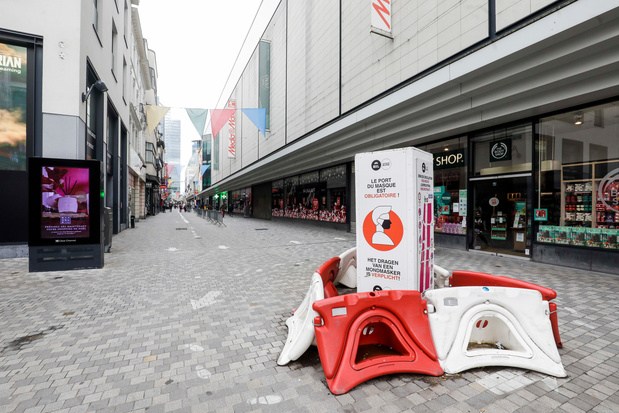Shopping by appointment, the coronavirus fighting measure imposed by the Belgian government during the Easter 'pause', resulted in the number of days of temporary unemployment in the retail sector doubling.
The Consultative Committee's decision to restrict non-essential shops to appointment only shopping for four weeks had a considerable impact on the sector: the percentage of temporary unemployment wet up from 5.5% to 12.6% for large retail businesses and from 4.9% to 9.7% for independent retailers, according to HR company SD Worx' April Employment Tracker.
"For the month of May, we expect to see an improvement and, thanks to the relaxations in these retail sectors, even a halving of temporary unemployment. Or at least a doubling of the number of days on which employees can actually work," Annelies Rottiers, SME consultant at SD Worx, said in a press release.
Related News
- Government extends coronavirus support measures until end of September
- Long working hours likely to increase risk of stroke or heart problem, WHO finds
- Disneyland Paris to reopen on 17 June after eight-month closure
On average, during the four weeks starting from 27 March, one day out of ten was lost in these sectors because employers resorted to temporary unemployment.
Non-medical contact professions, including hairdressers and beauticians, experienced the largest drop in employment in April, with an increase from 65% to 80% temporary unemployment.
During this same period, the hotel and catering industry had to rely on temporary unemployment for half of the days last month, despite the three-week-long extended Easter holidays.
Temporary unemployment in the hotel and catering industry was 49.59% in April and has remained around 50% since the second lockdown in October.
However, this percentage remained considerably lower than in the first wave, in part because restaurant owners managed to organise takeaways better.
According to predictions from SD Worx, based on the payroll data of 70,000 employers and almost one million employees in Belgium, the hospitality sector could face another difficult month in May before indoor relaxations are made on 9 June, and the halving of temporary unemployment, as we saw last summer, cannot be expected yet.
"As long as only the terraces are open, we cannot expect the same effect as last year. In July, August, and September, temporary unemployment halved to one day in four. A full reopening and the vaccination campaign can give this sector a better summer," said Steven Rosseel of SD Worx.

